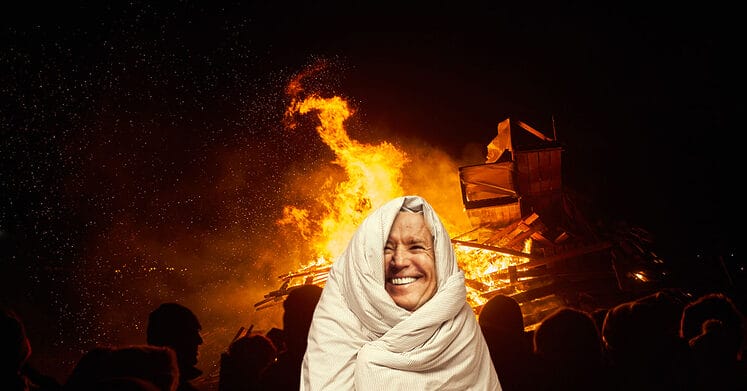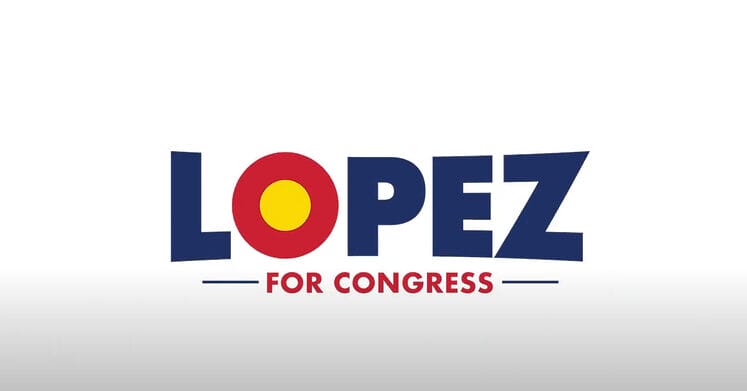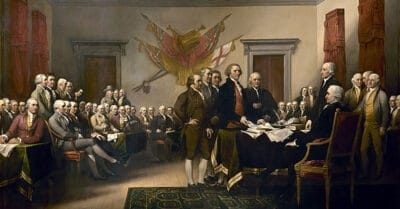
“We hold these truths to be self-evident, that all men are created equal, that they are endowed by their Creator with certain unalienable Rights, that among these are Life, Liberty and the pursuit of Happiness.—That to secure these rights, Governments are instituted among Men, deriving their just powers from the consent of the governed,—That whenever any Form of Government becomes destructive of these ends, it is the Right of the People to alter or to abolish it, and to institute new Government, laying its foundation on such principles and organizing its powers in such form, as to them shall seem most likely to effect their Safety and Happiness.” – The Declaration of Independence
“Of all the treasures a state can possess, the human lives of its citizens are for us the most precious.” – Joseph Stalin
“Third, we need to get drivers off the road and into public transportation. Getting more people on trains and buses isn’t just good for the riders but is also good for those still driving their cars.” – Colorado State Senator Faith Winter (D-Westminster), tweet when she was a state representative.
What is Government?
Government is a large force in all our lives – sometimes too large. From an annoyance always lurking in the background to a surrogate parent, our feelings about government range from active dislike to sycophantic love. The government has the legal monopoly on the use of force, and that is a power to be respected, feared – and kept under tight control and supervision.
And there are so many governments! From the local city, county and state governments all the way up to the federal government, there are multiple layers of government all taking our money through taxes; all policing, regulating and monitoring us – and all growing steadily larger and more intrusive.
When we think of government, we think of the elected officials whom we place in positions theoretically to serve us as our agents in the day-to-day management of the government, but in reality, most of whom view themselves somehow as our masters rather than our servants. See the quotes from Joseph Stalin and his intellectual cousin Faith Winter above.
But there is so much more to government at every level. In 2021, there were 18 million people working for state and local governments in the United States and 3 million civilian employees of the federal government. Put another way, there are 35 employees for every state and local elected official, and over 5,500 employees for every federal elected official.
What is worse is that these unelected bureaucrats are completely unaccountable to We the People, they are practically immune to being fired, roughly a third of them are in public sector unions, and they often receive above-market compensation, lavish perquisites and gold-plated retirement plans.
They, not the elected officials who set policy, are the true Swamp that President Trump pledged to take on in 2017. There are many aspects of our modern government that would give our Founders the willies, but the fact that our legislative branch has, over time, written the laws so that the implementation and interpretation of those laws is left to the executive branch means that the faceless Swamp and their ever-growing regulations are who is actually determining what is legal and what is not. They determine, through rulemaking, what we can and cannot do with our property.
The Swamp creatures know that they are the true government, and they know that they will continue to be there long after the current crop of elected fools is gone. (Or maybe not. Incumbency has a power all its own!)
Despite our ability to replace the chief executive every four years, the Swamp soldiers on uninterrupted. The only way to reach lasting change and rein in of the power of these people would be for a new president, say, a Republican, to fire them and do away with their unconstitutional, unnecessary departments.
As we learned during COVID-19, unelected and unaccountable bureaucrats somehow ended up with the power to order us to stay at home, to wear masks, to close our businesses and to shut down our schools. This is unconscionable and certainly not something that free citizens should tolerate.
There is a reason why our elected branches have given so much power to unelected bureaucrats, and it has to do with elections. Every two to six years, elected officials have to go before the voters and ask to be re-elected. By arranging for the frequently adverse consequences of government policy to be attributed to faceless employees of the State (or other branches of government) instead of themselves, they dodge accountability and thereby enhance their chances of being re-elected, which after all is the number one priority of most people in elected office.
The citizen-servants of the Founding era have given way to professional politicians who only care about gaining and maintaining power. (Of course, there are exceptions to this rule. There are people who truly want to serve, to scale back the size and scope of government and try to keep it within bounds. These people are generally called “Republicans” and they deserve our thanks and support.)
The Proper Functions of Government
The proper functions of government are simple and few: To safeguard Life, Liberty and the protection of property.
Safeguarding Life
This means, first, do no harm. It means not infringing upon the people’s means and ability to defend themselves from criminals, foreign invaders, and yes, the government itself. The police power that we give to government is not to keep us safe, it is to enforce the law. We must rely on ourselves for personal safety, and it is immoral for the government to impair our ability to do so.
While it is easy for the strong to protect themselves, it is incumbent upon society to protect the weak and those too young or otherwise incapable of protecting themselves. This is where civil society and the institutions of Western Civilization come into play – families, faith communities, neighborhoods and other organizations. Law enforcement and the judicial system have a role to play here, in maintaining a visible presence and the deterrent power of arrest combined with swift and sure punishment for breaking the law.
Safeguarding Liberty
Liberty is the freedom to make one’s own choices and to live one’s life as one sees fit, being free of force or coercion from others. Liberty is the ability to succeed or to fail and to reap the benefits or pay the consequences.
Liberty, of course, is not unlimited. One person’s rights stop when they impinge on the rights of others. This is so self-evident it should not need to be explained. Sadly, however, people do infringe on others all the time, up to and including murder. That is another reason for the police and judicial function of government.
With the right of freedom comes the duty to respect the rights of others. While my neighbor has the “right” to play their stereo at full volume at 3:00 am, they also have a “duty” to respect my property right of quiet enjoyment of my home.
Protection of Property
We own our minds and the products of our minds. When we use our minds to create the value necessary to acquire something else of value, we own that property. We also own whatever we trade that property for. As an example, a person takes photographs of a wedding. He has created something of value – photographs that the bride and groom will value. He exchanges those photographs for something called money.
Now, money has no value in and of itself, unless it happens to be made of a precious metal which has its own intrinsic value. Money is a proxy for property that does have an intrinsic value. (For more on money, read Francisco d’Anconia’s speech on money in Chapter Two of Part Two of Atlas Shrugged by Ayn Rand.) Money is property, whether it is a balance in a checking account or millions of dollars in the stock market.
Unless one has secure ownership of their property, free from the risk of theft or involuntary loss, one cannot thrive in the world. There would be no incentive to produce or to retain the excess of what is produced over what one must consume to stay alive. This is why every socialist society ever has failed. (See my essay On Socialism for more.) Conversely, it is why every capitalist society has improved human flourishing, and the freer the better.
Legal Monopoly on the Use of Force
In its role as protector of life and property, we the governed have granted to government the legal monopoly on the use of force. That force is ONLY to be used to protect life, liberty and property. This is why we have the military – to protect our nation – and police: to protect civil society. The role of police is to enforce the law, which often means investigating crimes and arresting the perpetrators, who then are subject to the judicial system, which assigns punishment.
Punishment is meant as retribution against the wrongdoer and a deterrent to those who would do wrong. This is why the “soft-on-crime” policies favored by our friends on the Left tend to cause higher crime rates – because there is no deterrent effect and the punishments are often nonexistent.
Let’s be clear: police are the armed agents of government. They have the legal monopoly on the use of force, which means that they have a high moral calling and duty.
Two things can be true at once: we need the police in our society unless we want to live in anarchy. At the same time, police must be closely supervised and given only just, constitutional laws to enforce lest they become the agents of tyranny. There are plenty of historical examples of both sides of the spectrum.
A corollary of the concept that government has the legal monopoly on the use of force is the fact that citizens may not initiate force, but they have every right to respond with force, including deadly force, if someone else unlawfully initiates force against them.
How Government Grows
Government grows in two ways: scope creep and the passage of time. Scope creep is when elected officials and unelected bureaucrats add roles and functions to government’s mission. The passage of time simply means that every year, legislators in the state and federal governments add thousands of proposed laws (bills), of which many are passed. Most of these grow the size of government one way or the other.
We can see the scope creep in the growth and expansion of the federal government of the United States. For the first 100 years or so of our country’s existence, the federal government was small and limited to certain basic functions like the military and the post office. Revenues came from tariffs and land sales. There were no income taxes.
After the Civil War and the growth of the “progressive” movement, government power started to grow. Before this, the state governments were relatively more powerful. Remember, the state legislatures elected the United States Senate, which meant that the state governments had direct oversight of our federal government. The passage of the 14th Amendment increased the power of the federal government, and the passage of the 17th Amendment (direct election of senators) greatly weakened the state governments.
As the twentieth century moved along, more and more government agencies – none of them authorized in the Constitution – came into being. Interior, Agriculture, Commerce and Labor. Housing and Urban Development. Health and Human Services. Transportation. Energy. Education and Veteran’s Affairs. Homeland Security. These agencies make up the Swamp that runs our country, and with the exception of Homeland Security have dubious legitimacy.
These agencies employ millions of people and cost billions of dollars. They crank out regulations (published in the Federal Register) totaling thousands of pages that have the force of law, even though no elected official promulgated that law.
The second way that government grows is just through the passage of time. Yes, local governments are always open for “business”. Most state legislatures are in session for part of the year most years. According to www.ballotpedia.org, 46 states hold regular sessions annually. Four states (Montana, Nevada, North Dakota and Texas) meet in odd-numbered years. Ten states have full-time legislatures – and most of them have “the blues”, so to speak.
Because “lawmakers” are interested in making laws, they tend to make a lot of them, which means the size and weight of government grows every year just through the action of the legislature. And there are so many of them! In Colorado, over 500 bills are introduced each year. And while not all of them become law (thankfully), many of them do. And virtually every new law is an incremental chip away at our freedom, or a little more regulation, or another tax, “fee” or “premium”. It’s sad when you think about it.
According to www.quorum.us, “Legislation moves faster and is passed at higher frequencies at the state level than the federal level. In fact, state legislatures introduce 23 times the number of bills than the U.S. Congress does, totaling an average 128,145 bills per year and 3.1 million words per day while in session.” [Emphasis mine] This means, on average, a little over 2,500 bills per state per year (not counting for the four states with every other year sessions).
Every other year should be a “law-unmaking” year, where prior legislation is reviewed and repealed if it turns out to be a failure. Or perhaps all laws, except for those protecting life, liberty and property should be subject to repeal, sunsetting and reauthorization every few years.
Too Much vs Too Little – Tyranny vs Anarchy – Both are Bad
Much of life is a balancing act, and the question of “how much government” is no exception. Too much government means that the government is too large, too intrusive, takes up too many resources and limits freedom. Some of these governments, of course, have been blatantly inimical to human flourishing. Instead of protecting life liberty and property, these governments take them away. The best (or worst) examples of these are the 20th century socialist/communist governments of Germany, Russia, China, Cuba, North Korea, and others where literally millions of people were killed under the sovereign laws of their own governments.
Sidebar: Is it the will of the people? Does that make it right? In a true democracy, the majority rules. If the majority rules that you can be deprived or your property or even your life simply because they have the power through a majority vote, does that make it right? Does that make it moral? No, of course not, which is why our Founders left us “…a republic, if you can keep it”.
On the other side of the spectrum is anarchy, where there is little to no government or the government is ineffective and impotent – unable or unwilling to perform the legitimate functions of protecting life, liberty and property. In those kinds of situations, strong local leaders become the de-facto government and society devolves into a collection of tribes being run by warlords. When this is the case, the strong rule over the weak, and there is no protection under the law for anybody.
Which is worse – anarchy or tyranny? Well, in his “The Great Big Book of Horrible Things: The Definitive Chronicle of History’s 100 Worst Atrocities”, author Matthew White takes a look at the worst atrocities in human history. He writes in the Introduction: “Chaos is deadlier than tyranny. More of these multicides result from the breakdown of authority. In comparison to a handful of dictators such as Idi Amin and Saddam Hussein who executed their absolute per to kill hundreds of thousands, I found more and deadlier upheavals like the Time of Troubles, the Chinese Civil War, and the Mexican Revolution where no one exercised enough control to stop the death of millions.”
Interestingly, as we’ve seen in Colorado with the ruling Democrat tyranny simultaneously weakening the police and reducing or removing the penalties for committing crimes there is an element of anarchy in the streets, where crime is measurably higher than it was even ten years ago. Yet, the Democrats want to put ever more rules and regulations on the citizens, grow government to larger size, and rely on the police, whom they fear and mistrust, to enforce their laws. It’s a paradox that is driven by the cognitive dissonance that is a feature of progressive “thought”.
What To Do
It is vital that We the People reclaim our government from the politicians, bureaucrats and other interested parties (the “establishment”, the “elite” or whatever you want to call them) and demand that our elected officials serve our interests instead of their own.
We must develop, recruit and elect public servants who understand the proper role of government and who, once in office, will remain true to those principles. All too often, in the name of “getting things done” or using the force of government to impose their own vision of how society should be, even elected Republicans can go astray. I believe the temptation is real, and that it is powerful.
We need to elect public servants who will take on the Swamp at the local, state and federal levels. The money that the State takes from us by force should be put to the highest and best use, which means: to operate a government that performs its constitutionally granted limited functions. Our money should be used wisely and frugally and, when they collect too much, returned to us.
What can you personally do? Recognize that the deck is stacked against we who call ourselves libertarians or conservatives. Understand that there is a progressive infrastructure nationally and certainly in Colorado whose primary objective is to gain, maintain and increase political power.
Understand that they are not like us. Whereas we want to live and let live, they literally want to control your life. They want to control what you eat, how you get to work, where you work, what you can say, what you can and cannot do with your children, and so much else. They hobble the police yet want to disarm you. They weaken the criminal justice system, unleashing crime and homelessness upon our cities. They really believe that they know what’s best for society and they will use any means necessary to impose their dystopian vision on the rest of us.
This means that we must fight back in every way we can. Via the public square (social media). By supporting and voting for candidates who share our views, recognizing that not voting for them has the same effect and end result as voting for the progressive.
There’s not much time left to turn things around. I’d like to think America’s best days are ahead of us, not behind us. Let’s make it so.









Responses
Hi,
Thank you for your very smart words.
That article was very informative.
Best essay I’ve read all year. Bravo and thank you.
Tiny critiques: 1) government growth due to time is not specific. Perhaps government growth due to population a reasonable justification. 2) A third reason for government growth can be attributable to Socialism. The very nature of Socialism is hostile takeover of private industries thus growing government, and shrinking the private sector.
It’s great to see people addressing the crisis (and it is a crisis) we are experiencing at the local level of government!